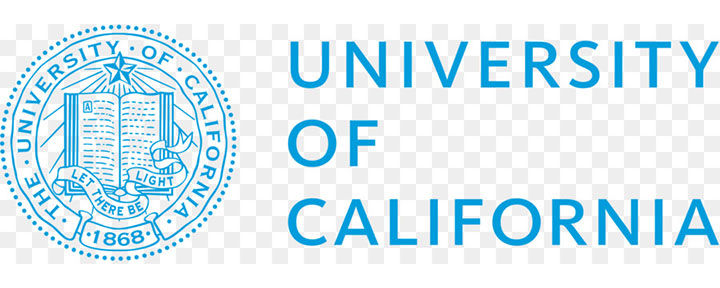
Most high school students know that a D in an academic class is a passing grade. That means they get 5 credits towards high school graduation and the course has satisfied the particular category (English, math, etc.).
But while a student can eek by with a D for graduation purposes, in California, the UCs and the CSUs will not accept Ds for their core academic courses (known as A-G courses). Yup. For UCs and CSUs, you need to receive a C- or better to get credit for these courses and to be eligible for enrollment in the largest public university systems in the country.
This can be very confusing for students who are not familiar with college admissions requirements, and especially so for students from homes where parents did not attend college. A recent survey found that only 37% of Black and Hispanic students understood what A-G eligibility meant.
To address these concerns, some California schools are considering “dumping the D” and moving a passing grade to a C and giving “incompletes” for Ds. Either way, students should have the same passing grade requirements for high school graduation and for college admissions. Let’s close that gap!

Most high school students know that a D in an academic class is a passing grade. That means they get 5 credits towards high school graduation and the course has satisfied the particular category (English, math, etc.).
But while a student can eek by with a D for graduation purposes, in California, the UCs and the CSUs will not accept Ds for their core academic courses (known as A-G courses). Yup. For UCs and CSUs, you need to receive a C- or better to get credit for these courses and to be eligible for enrollment in the largest public university systems in the country.
This can be very confusing for students who are not familiar with college admissions requirements, and especially so for students from homes where parents did not attend college. A recent survey found that only 37% of Black and Hispanic students understood what A-G eligibility meant.
To address these concerns, some California schools are considering “dumping the D” and moving a passing grade to a C and giving “incompletes” for Ds. Either way, students should have the same passing grade requirements for high school graduation and for college admissions. Let’s close that gap!

Students graduating from UC earn more than the median income for all California graduates within six years of earning their degree and, on average, double their earnings within ten years of graduation. Earnings potential is an important factor to consider in the college search and enrollment process. UC graduates earn about $43K at two years after graduation, $88K by ten years after graduation and $110K by sixteen years after graduation. Naturally this varies by industry, but even alumni working in fields like Fine Arts or the non-profit sector that tend to have lower compensation rates still exceed median nationwide salaries.
UC students from all income quintiles succeed in achieving incomes that surpass those of their parents, with over 90 percent of the lowest income students, and 50 to 70 percent of middle income students doing so. UC is an equalizer for students who come from the bottom 20 percent of income – that is, they go on to earn as much as students who came from middle-income families (reflecting the 3rd and 4th quintiles). Their earnings usually double within 10 years of graduation.
More than 73 percent of UC alumni live and work in California, the fifth largest economy in the world. UC is the state’s third largest employer, supplying one of every 45 jobs, and the university plays a critical role in bolstering California’s economy. Investing in a UC education benefits the state, as every $1 of state funding will generate or support over $21 in economic impact.
As students and families begin a new academic year, and engage in the search for college opportunities, the cost of attendance and availability of financial aid informs concerns about the value of a UC education. The new Tuition Stability Plan freezes tuition for students enrolling in fall 2022 for 6 years, making it easier for families to plan effectively. From the time of the students’ enrollment through graduation, families will not have to worry about unexpected tuition increases or hidden fees. UC offers one of the nations’ strongest financial aid programs, granting more than $4.8 billion dollars annually. Students graduate with almost $10,000 less debt on average when compared to national statistics. More than half (56%) have no student loan debt at graduation.
Finally, graduation and time-to-degree matter. Students and their families want to be assured that they can graduate in a timely manner. UC students have one of the highest overall graduation rates in the country. Freshmen take an average of 4.15 years to graduate with 86 percent graduating from UC in 6 years. The average time-to-degree for transfer students, once enrolled at UC, is 2.4 years, with 89 percent graduating within 4 years of entering.
The qualitative value of UC is a simple and powerful story to tell. We promote the excellence of a UC education with internationally recognized faculty including many Nobel Laureates, and winners of other prestigious awards: the Pulitzer Prizes, the Fields Medal, the National Medal of Science, and MacArthur Genius grants. We are proud of the diversity and vibrancy of our campus communities, the breadth and depth of opportunities for students in and beyond the classroom, and our commitment to the academic, personal, and professional development of our students. All these remain characteristic of our campuses and community; they are hallmarks of UC. But we shouldn’t forget the numbers. They also have a story to tell about the value of UC.

Remember the Varsity Blues Scandal? Well the University of California (Berkeley, Los Angeles, San Diego, and Santa Barbara) has admitted 64 students over the past 7 years who were not qualified. Yup! 22 who were admitted as student athletes who couldn’t compete on athletic teams, and 42 at UC Berkeley who were admitted because their parents donated money or they were related or connected to the university staff even though they didn’t have the competitive qualifications needed to be accepted. Wow.
UC Berkeley allowed admissions staff to request preferential treatment for relatives and donors by using a process that was designed to help applicants from disadvantaged backgrounds. Donor’s children, athletes, and even a babysitter of a colleague of the director of admissions got into UC Berkeley, even though they weren’t qualified. State auditors released a report with these findings yesterday.
When will the cheating stop?

The University of California (UCs) plans to drop the SAT and the ACT, and create a new test for high school juniors and seniors. Over the years, UCs have complained about the validity of the SAT/ACT and the SAT II.
For 2021 and 2022, the UCs will not require the SAT or ACT. For students who do want to submit them, they don’t have to submit the writing test.
For 2023 and 2024, the UCs will be test blind for California applicants, which means that the SAT/ACT scores will NOT be used in admissions decisions. The SAT/ACT scores may be used for scholarship consideration and for the guaranteed admissions for the top 1/8 of California high schools. Out of state applicants could use their SAT/ACT scores.
For 2025, all California students will use the new UC test instead of the SAT or ACT. Out of state or international students will have the option to use the new UC test or the existing SAT/ACT. If for some reason the new UC test is not ready by 2025, students will not be required to submit either the SAT or the ACT – the UC will go fully test blind and eliminate standardized tests in their admissions decisions.
It’s not clear whether or not the California State Universities (CSUs) will follow suit. My bet is that they will follow the same standards as the UCs; their policies have usually aligned in the past.
The new test will be based on simulations and real performance to reveal more about the student’s reasoning potential, problem solving, and critical thinking skills. They’re hoping that this new test will assess these factors because these are important in determining college and career success. According to the UCs:
“While we acknowledge that this recommendation is multi-faceted, the university would be remiss not to offer students flexibility beyond one admissions cycle. During this period, UC will learn what it can about how its own policies can advance (or limit) student achievement, access, school choice behaviors and educational outcomes,” the plan said. “The university can also exercise its leadership in making available to students a properly designed and administered test that adds value to admissions decisions, enhances equity and access for more students, has a positive impact on student preparation, and does so in a manner that reduces the social and monetary burdens associated with the currently required ACT/SAT tests.”
I have never considered either the ACT or the SAT to be a good test to determine whether or not a student will be successful in college or career. The only reason I like the SAT and ACT is that all students, around the world, take the exact same test on the same day. Up until now, it’s the only factor that is fair amongst all of the college-bound students. GPAs vary by school and recommendations vary by teacher. Looking forward to seeing this new UC test. If it is a success, it may become the new SAT/ACT.
